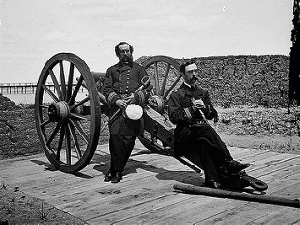Article Series: Traitor to My Race: The Abolition of White Privilege
PART III OF III: PERSONAL TRANSFORMATION
I was first confronted about my white skin privilege when I was twenty-four years old. (Yes, full disclosure: I'm white, from Brooklyn, and 72.) I had just returned from three years in the Peace Corps in Colombia and was newly enrolled in UCLA's "grass-roots" community organizing sequence, the first and last time the school offered that course of study. Our C.O group -- nine of us plus a faculty advisor -- were on a field trip to South Central L.A. and were meeting with Maulana Karenga, a Black nationalist and advocate, who would eventually become Director of Africana Studies at Cal State Long Beach. Years later, Dr. Karenga would also originate and promote the pan-African holiday of Kwanzaa.
Since several of us would be doing field work in L.A.'s Black neighborhoods, the meeting was designed at giving us an overview of issues pertinent to the Black community. Holding no punches, Karenga told eight of the nine of us -- one member of our group was a Black male student -- that we had benefitted from having white skin. I remember looking at him incredulously and telling him he was totally mistaken: I had been raised on public assistance, gotten all my education via scholarships, and had worked for everything I had. The meeting ended shorty thereafter and I left unconvinced and uncomprehending. However, I never forgot what I had been told and have spent the rest of my life trying to figure out the practical, day-to-day application of that phrase.
My reaction is, I believe, a typical white American reaction. I have also come to appreciate that it is implicity a white supremacist response since, by implication, it means I worked for what I have and you didn't, which is why you have nothing. It is also a self-deluding and isolative way of understanding material success and failure in this society: white supremacism obliges you to see both as individualized phenomena and to ignore them as systems phenomena dependent on your status in a presumably open and democratic society. In actuality, the higher your and your family's status in this society -- i.e., the greater your and their wealth and access to political and economic power -- the greater the likelihood of your material success. Interestingly, the factor of social status has begun to be regarded as a key causative and iterative or self-repeating variable in understanding income equality, but is rarely labeled by economists as systems-determined. Accordingly, while income inequality is regarded as a threat to democracy, its systems-determined etiology is itself rarely considered anti-democratic.
Ultimately, failure to understand material success or failure as systems-determined stands as a huge barrier to addressing the systems at the heart of the problem. Consequently, it prevents political and economic collaboration within and across class and ethnic lines. How often did white Southern workers refuse to unionize because unionization would bring into the workplace on equal footing their black worker counterparts? Unfortunately, they accepted the admonitions of their bosses and anti-unionists that Blacks were inferior workers and would jeopardize rather than help safeguard their jobs.
Back again to the ultimate question of this discussion -- how do white Americans discard culturally inbred notions of white supremacy and begin to change their self-identity?
To offer, again, some aspects of my own evolution. Even before I met Dr. Karenga, I had spent my childhood with Black kids. I was raised in Brooklyn's Bedford-Stuyvesant section, in the late 1940's and early '50's a neighborhood in transition, with real estate speculators block-busting, frightened Italian families moving out to Bensonhurst, Black families beginning to buy the over-priced housing. It was a tough neighborhood, with lots of Black-white conflict, particularly between us kids. I had my share of fights but I also had friends. I was in similar situations later in life, first in East Los Angeles, where I lived and worked after I got my MSW from UCLA and later, when I moved back to New York City and lived and worked in Sunset Park in Brooklyn. Both were Latino neighborhoods, East L.A. Mexican-American, Sunset Park Puerto Rican and Dominican. Only small enclaves of whites lived there. I was fresh from Colombia, my Spanish was sharp, my love and comfort with people and things Latino high, so my family and I moved in.
(Note: You can view every article as one long page if you sign up as an Advocate Member, or higher).





